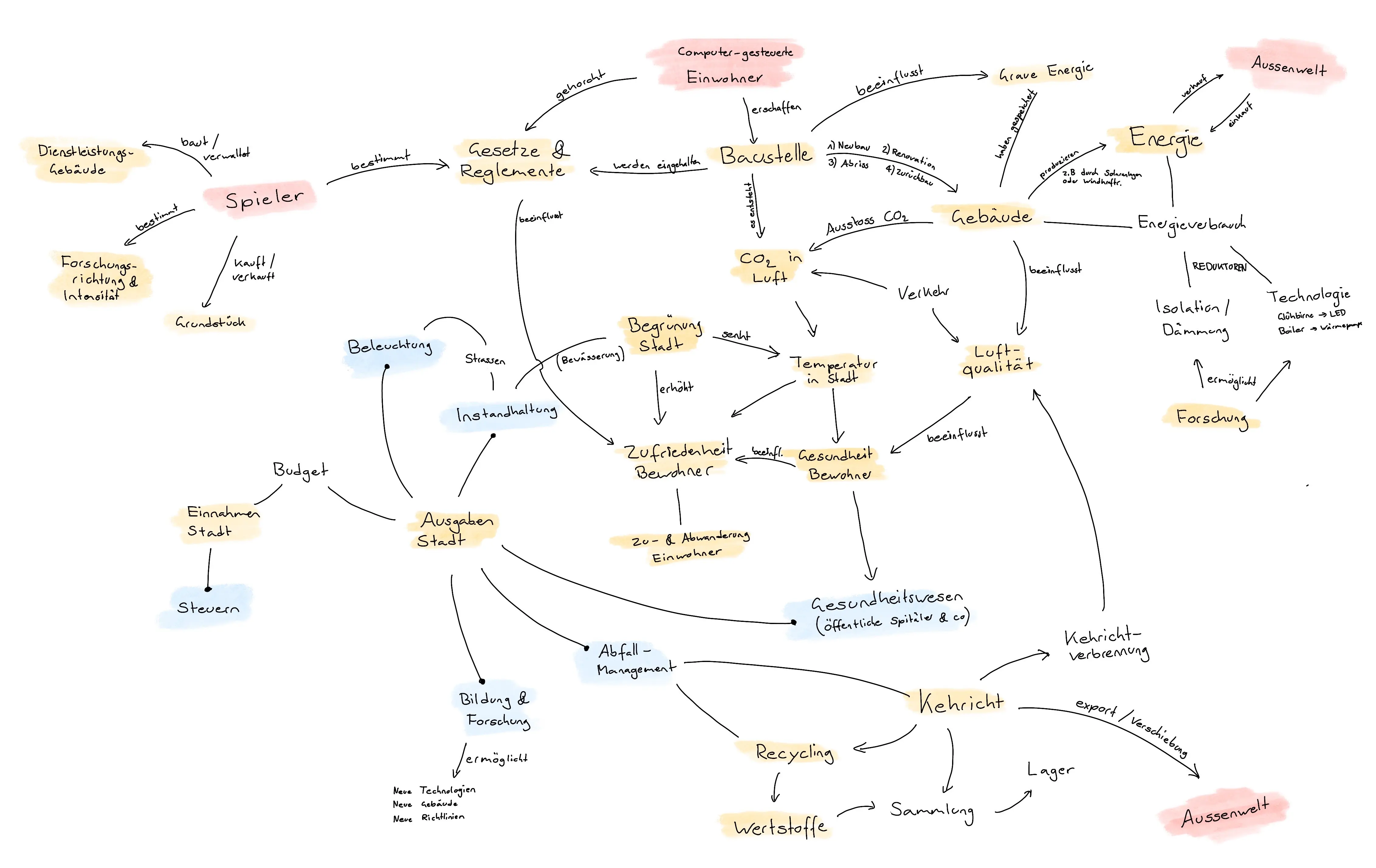Emission Zero: A sustainable construction simulation game, 1990-2050
Description
Imagine a city somewhere in Switzerland. The year is 1990 and now it's about pursuing sustainable development that aims to achieve emission zero by 2050 at the latest. Where to start? What strategies must and can be used to perhaps achieve this goal beforehand? This city is a simulation within a video game and you as the player are responsible for its sustainable development. You are in competition with other players: whoever reaches the net zero goal with this city first wins. Tax money is available to you for this. Where do you start? Maybe with the existing houses, which are broken down in detail in the game and which have varying degrees of poor insulation. A lot of heat energy is lost. Re-insulation is difficult and expensive. But this also requires economic incentives and appropriate labels (Minergie, for example, was only created in 1994). Tearing it down and building a new one would probably be the most obvious thing to do when you consider the maintenance costs and energy consumption. But what about the CO2 consumption that occurs during construction? And the embodied energy that is in the material? The city would also lose its character, as these old buildings carry a lot of history with them. The player is confronted with such decisions in our simulation game and it is about weighing up different options. In addition to the city and the necessary communication channels, the player will constantly be able to read the C02 emissions of his city as a value and on a curve. In addition, CO2 emissions have a visible effect on the air and the environment and thus also on the health of its residents. The game thus conveys how and to what extent the existing buildings participate in CO2 and waste production and how one can intervene here. The city is depicted as a closed ecosystem so that the consequences of pollution become locally visible. The game is being developed together with PH Zurich and complies with ESD 2.
Key data
Projectlead
Deputy Projectlead
Project team
Guido Brandi, Christian Meier, Prof. Dr. Andreas Witzig, Dr. Ivo Suter, Anke Domschky, Prof. Dr. Thomas Schmalfeldt, Adrian Degonda, Sascha Roesler, Ulrich Götz
Project status
ongoing, started 08/2023
Institute/Centre
Centre for Aviation (ZAV); Institute of Constructive Design (IKE); Institut Urban Landscape (IUL); Institute of Computational Physics (ICP)
Funding partner
Bundesamt für Energie BFE; Allreal Generalunternehmung AG; myky AG; Schweizerischer Ingenieur- und Architektenverein SIA / Bildung; Schweizerische Bundesbahnen SBB / Immobilien; Stadt Zürich / Amt für Städtebau; Stadt St. Gallen / Umwelt und Energie
Project budget
300'000 CHF

